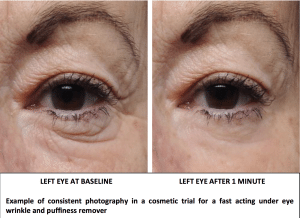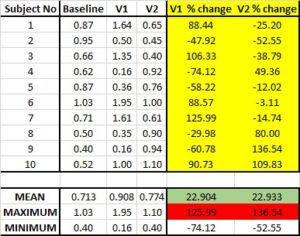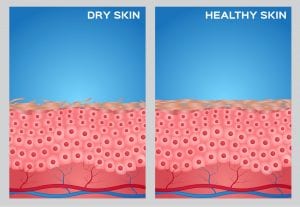With global sales expected to exceed $130 billion by 2019, skincare is the biggest segment in the beauty industry according to Forbes. More demand means plenty of opportunities for new products and brands to come into the market and bring innovation that can satisfy the latest trends. Cosmetic companies invest huge amount of resources into new product launches, which need to be strategically planned so that good products are associated with equally strong marketing and product claims.
Being involved in clinical trials for the personal care industry means we are often asked advice on how to support a variety of cosmetic claims. One claim that seems to be particularly valued for skin care products is “Dermatologist(s) recommended”,
Backing of products by medically qualified professionals, whether done privately in their clinics or publicly in the media, has great impact on consumer confidence and sales conversion. Cosmetic products that are referred by doctors who specialise in skin health, possess a definite competitive advantage.
“Dermatologist(s) recommended” does not imply that clinical research has been conducted on that product nor it defines the benefits of the product. This claim is rather a form of endorsement which is emphasised by skin care companies for marketing purposes.
How is such endorsement obtained?
Commonly, the skin products displaying such claim have been on the market in Australia and/or overseas for many years. Some of these products are well known among doctors and they may have gained a ‘reputation’ to be relatively effective and ‘safe’. Such household brands are commonly referred by doctors for everyday cosmetic use. Therefore, it’s probably correct to say that over the years these products have been ‘recommended by dermatologists’.
However, this type of claim is rarely used with reference to a new or relatively novel product or brand. This is simply because new products have not by definition been on the market long enough to gain such ‘status’. Therefore, it might be difficult to prove that they are indeed recommended by dermatologists, if ever challenged.
How do you obtain a similar type of endorsement for a new brand?
In order to assist clients to support similar claims in relation to their newly developed products, some cosmetic testing companies offer to conduct testing under the supervision of a dermatologist (sometimes at an additional cost) so that clients are able to claim ‘dermatologist tested’ or ‘dermatologist approved’. The likely scenario here is that a dermatologist has a role in the testing procedure being carried out on the product in order to support the claim, however the actual outcome of the test or the details of the procedure to obtain the said dermatologist ‘approval’ are rarely scrutinised. Also, the fact that one dermatologist has ‘tested’ or ‘approved’ the product, doesn’t necessarily reflect the opinion of the entire medical fraternity, which is perhaps how this claim hopes to be perceived.
Doctors’ endorsement in Australia
In Australia it is uncommon to find physicians who are willing to endorse cosmetic brands or be commercially associated with particular personal care products, at least openly. You might have noticed, for example, that TV or paper advertising more often involve overseas doctors supporting the effectiveness of certain skin care brands. Or you may have come across Australian doctors recommending their very own brands rather than someone else’s. Whether the choice to dissociate from the commercial side is dictated by professional integrity or simply lack of interest, generally it is not easy for cosmetic companies to obtain clinicians endorsement locally in Australia.
Other options
The lack of involvement by medical professionals with practices concerning cosmetics sales encourages companies that are willing to have their products tested in Australia to focus their marketing on other, probably more interesting aspects regarding cosmetics. These include their efficacy, safety and consumer likeability. Skin care brands that wish to have their products tested under Australian conditions, by people living in Australia, more often choose to focus on claims associated with the actual test (e.g. dermatologically tested), the characteristics of the test participants (e.g. suitable for oily skin) and the test results (e.g. clinically proven to improve skin hydration by 50%). These types of claims address the true purpose of scientific study being conducted on cosmetics, which is collecting evidence regarding the benefits of the cosmetic to the end user. After all, shouldn’t the success of a cosmetic product be measured by the number of happy consumers, rather than the quantity of paid endorsements?




